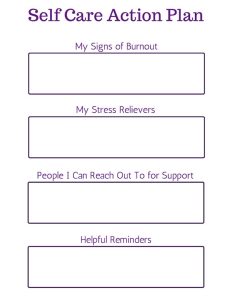
In today's demanding work environment, work stress has become increasingly prevalent. The combination of tight deadlines, overwhelming workloads, and the need to juggle personal obligations can significantly impact our mental and physical health. Nonetheless, by adopting effective strategies and taking a proactive stance, it is feasible to navigate work stress and attain a more harmonious work-life equilibrium. This article explores the essential processes that can help individuals effectively manage work stress and foster their overall well-being.
Understanding the Impact of Work Stress

To effectively address work stress, it is crucial to have a comprehensive understanding of its impact, which involves recognising the signs and consequences that might emerge in various ways. Physically, work stress may lead to chronic fatigue, frequent headaches, or digestive problems. Emotionally, it can result in irritability, mood swings, anxiety, and sadness. Regarding behaviour, work stress may cause changes in appetite, sleep disturbances, or social withdrawal.
By familiarising ourselves with these physical, emotional, and behavioural symptoms, we gain insight into how work stress affects our well-being and productivity. Understanding its negative impact on our health and performance can catalyse proactive measures. By recognising the signs and consequences of work stress, we empower ourselves to make the necessary changes to mitigate its effects and prioritise our overall well-being.
Time Management and prioritisation

Effective time management is critical to reducing work stress. Dividing large jobs into more minor, more doable phases and creating a well-structured schedule allows for better allocation of time and resources. By prioritising tasks based on urgency and importance, individuals can focus on tackling the most critical responsibilities first, which helps reduce overwhelming feelings and promote a sense of control. Furthermore, learning to say no and delegating tasks when appropriate can alleviate the burden of an excessive workload, enabling individuals to maintain a healthier balance between work and personal life.
Establishing boundaries is essential to managing work stress and maintaining sustainable work-life integration. By setting clear limits on working hours, individuals can safeguard their time and prevent burnout. Resisting checking work-related emails or engaging in tasks during non-working hours is crucial. Creating designated spaces for relaxation and leisure at home further reinforces the boundaries between work and personal life. Communicating these boundaries to colleagues and supervisors promotes understanding and helps foster a healthier work environment that respects and supports work-life balance.
Establishing Boundaries

Establishing and maintaining clear boundaries between work and personal life is essential to preventing burnout and maintaining a healthy work-life balance. Setting explicit limits on working hours helps create a structure that ensures dedicated time for individual activities and relaxation. Avoiding the temptation to read work-related emails regularly and engaging in work tasks during personal time is crucial for preserving mental and emotional well-being.
In addition to time boundaries, creating physical boundaries within your home environment is beneficial. Designating specific areas or spaces for relaxation and leisure helps signal a shift from work mode to personal time, providing a physical reminder to disconnect and recharge. Communicating your boundaries effectively with colleagues and managers is key to fostering a supportive work environment that respects work-life integration. By clearly articulating your needs and expectations, you can establish a mutual understanding and promote a healthier balance between work responsibilities and personal well-being.
Building a Supportive Network

Building a solid support system is paramount to effectively managing work stress. Building positive relationships with colleagues who empathise with your experiences and provide guidance can offer valuable support. Cultivating open lines of communication and fostering a sense of camaraderie create a supportive work environment where people may rely on one another during challenging times.
Sharing your concerns and seeking advice from trusted individuals who can lend a listening ear and offer valuable insights is crucial. These trusted confidants can provide a fresh perspective, offer emotional support, and potentially share strategies they have found effective in dealing with work stress. By reaching out to them, you can alleviate feelings of isolation and reassure them that you are not alone in navigating work-related challenges.
Engaging in workplace wellness programmes or seeking professional support, such as counselling, can also be instrumental in managing work stress. Workplace wellness initiatives often provide resources, workshops, or activities to promote well-being and reduce stress. Additionally, seeking professional guidance from counsellors or therapists can provide a safe environment for exploration, address the underlying causes of work stress, and develop personalised coping strategies. These avenues of support can contribute significantly to your overall resilience and well-being in the face of work-related stress.
Self-Care Practices

Prioritising self-care activities is essential for promoting resilience and overall well-being, especially in the face of work stress. Engaging in joyful and relaxed activities allows individuals to recharge and replenish their energy reserves. Whether it's regular exercise, meditation, pursuing hobbies, or spending quality time with loved ones, these serve as essential outlets for stress relief and rejuvenation.
Taking breaks during the workday to engage in brief self-care practices can significantly reduce stress. Activities such as stretching, deep breathing exercises, or practising mindfulness can help individuals recalibrate their focus, release tension, and regain mental clarity. These short breaks provide an opportunity to pause, reset, and restore balance amidst work demands, ultimately contributing to increased productivity and overall well-being. By intentionally incorporating self-care practices into daily routines, individuals can better cope with work stress and enhance their resilience to navigate challenges effectively.
Effective Communication

Effective communication is a fundamental aspect of managing work stress. By openly and clearly expressing your needs, concerns, and limitations to your supervisors or team members, you establish a foundation for understanding and collaboration. Transparent communication is vital in setting realistic expectations and ensuring everyone is on the same page regarding workloads, deadlines, and responsibilities. By clearly articulating your boundaries and limitations, you create an environment where you prioritise your well-being, leading to a healthier and more balanced work dynamic.
Furthermore, effective communication enables you to obtain the necessary support to manage work stress. By openly discussing your challenges and seeking assistance when needed, you allow others to offer guidance, share resources, or collaborate on finding solutions. Communicating your needs also encourages colleagues and supervisors to be more receptive and responsive, fostering a supportive work environment where individuals can lean on each other and collectively address stressors. Effective communication promotes a positive work culture that values open dialogue, empathy, and mutual support, contributing to a healthier and less stressful work environment.
Healthy Lifestyle Choices

Maintaining a healthy lifestyle outside of work is crucial for effectively managing work stress. Prioritising self-care practices that support your physical and mental well-being is essential. Ensuring you get enough quality sleep is paramount, as it allows your body and mind to rest and rejuvenate, enhancing your resilience and ability to cope with stress. Maintaining a balanced diet that includes nutritious foods also gives your body the fuel and nutrients it needs to function optimally, boosting your energy levels and supporting your overall health.
Engaging in regular physical activity is also instrumental in managing work stress. Physical activity causes the release of endorphins, which are happy hormones and a natural mood enhancer that lowers the body's stress hormone levels. Whether going for a walk, practising yoga, or participating in your favourite sports activity, physical exercise promotes physical health and is a powerful stress-relieving outlet. Incorporating these healthy lifestyle practices into your daily routine establishes a solid foundation for dealing with work stress, enhancing your overall well-being, and living a balanced and satisfying life.
Seeking Professional Help

When work stress overwhelms and significantly impacts your daily life, seeking professional help is a valuable step towards finding relief and support. A qualified therapist or counsellor possesses the expertise to understand and address the complexities of work-related stress. They can offer personalised guidance and support, helping you explore the fundamental reasons for your stress, build appropriate coping skills, and handle the issues you may face on the job.
Professional help provides a safe and non-judgmental space to express your concerns, gain insight into your stress triggers, and work towards finding sustainable solutions. A therapist or counsellor can equip you with valuable tools and strategies to manage work stress effectively while addressing any underlying emotional or psychological factors contributing to your experience. Seeking professional help demonstrates a proactive and self-compassionate approach to prioritising your mental health and well-being, empowering you to regain control over your work-related stress and achieve a healthier and more fulfilling professional life.
Conclusion:
In conclusion, work stress is pervasive in today's fast-paced and demanding professional world. However, it is within our power to manage and minimise its impact on our well-being. We can navigate work stress and foster healthier work-life integration by implementing proactive strategies and a holistic approach.
Understanding the signs and consequences of work stress is the first step towards addressing it. By recognising these signs, we can take timely action to prioritise our mental and physical well-being. Effective time management and establishing clear boundaries between work and personal life are crucial to maintaining a healthy work-life balance. By prioritising self-care activities, engaging in effective communication, building a support network, and maintaining a healthy lifestyle, we equip ourselves with the tools and resilience to manage work stress effectively.
It is also critical to understand that seeking professional assistance is not a show of weakness but rather a proactive move towards bettering our mental health. A qualified therapist or counsellor can provide guidance, support, and personalised strategies to help us navigate work-related challenges and develop effective coping mechanisms. By adopting these proactive strategies, we empower ourselves to create a healthier and more fulfilling professional journey where we manage and prioritise our work stress and well-being more effectively.
Twenty Activities for Balanced Well-Being
- Painting or drawing: Use art as a creative outlet to express emotions and reduce stress.
- Journaling: Write down your thoughts, feelings, and experiences to gain clarity and release stress.
- Music therapy: Listen to calming or uplifting music to relax and improve your mood.
- Dance or movement therapy: Engage in rhythmic movements to release tension and promote emotional well-being.
- Poetry or creative writing: Use words to express emotions, explore personal narratives, and find inspiration.
- Collage making: Create visual representations of your goals, dreams, or positive affirmations to inspire and motivate yourself.
- Photography: Capture moments of beauty or focus on mindfulness by exploring your surroundings with a camera.
- Drama or theatre: Participate in acting or improv exercises to boost confidence and self-expression.
- Sculpting or pottery: Engage in hands-on activities to channel stress into creating three-dimensional art.
- Colouring books or mandalas: Engage in mindful colouring to relax and focus your mind.
- Guided visualisation or meditation: Follow audio or video guides that help you visualise peaceful and calming scenes.
- Mindful breathing exercises: Practice deep breathing techniques to reduce stress and promote relaxation.
- Nature walks or outdoor activities: Connect with nature to rejuvenate your mind and find solace in your natural surroundings.
- Group art therapy sessions: Attend sessions run by a licenced art therapist to participate in art-based activities and discuss experiences with others.
- Mindfulness-based stress reduction (MBSR) programmes: Enrol in structured programmes that combine mindfulness practices and expressive arts to reduce stress and promote well-being.
- Drumming circles or rhythm-based activities: Use rhythm and percussion instruments to release tension and promote unity.
- Laughter therapy or comedy shows: Engage in activities that bring laughter and joy to uplift your mood and relieve stress.
- DIY crafts or DIY projects: Engage in hands-on crafts or DIY projects to channel creativity and distract from work-related stress.
- Aromatherapy or scented candle making: Use calming scents to create a soothing environment and promote relaxation.
- Yoga or tai chi: Practice gentle movements, stretching, and mindfulness to reduce stress and improve overall well-being.

